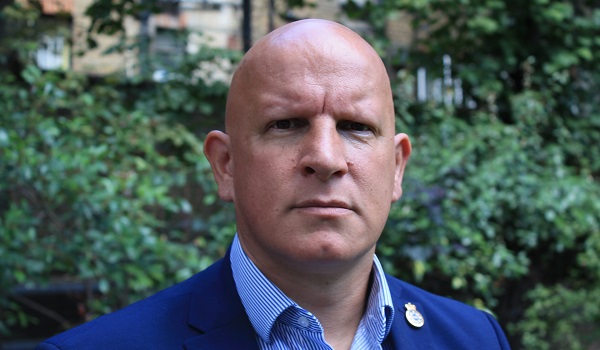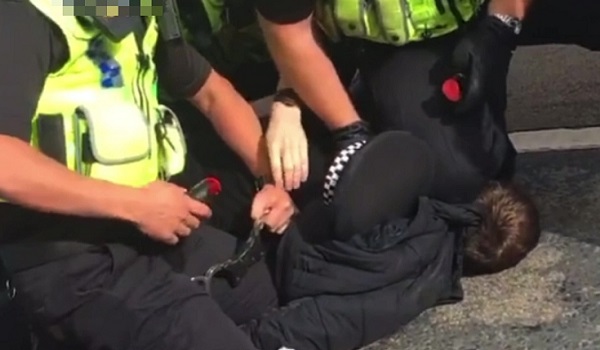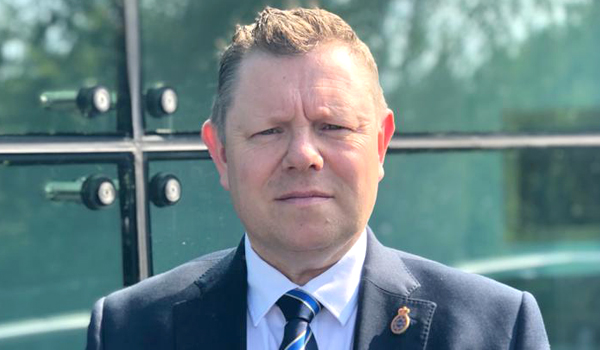TVP federation calls for scrapping of degree-holder entry route
The chair of the Thames Valley Police Federation is calling on the College of Police to scrap the degree-holder entry programme (DHEP) due to the impact it is having on frontline services.
Craig O’Leary said policing risks grinding to a halt due to the use of such “restrictive” new entry routes that mean new officers are unavailable for frontline duties for weeks at a time due to Protected Learning Time (PLT), where trainees spend 20 per cent of their work time studying.
Mr O’Leary said he welcomed the Government’s decision to uplift policing numbers, but that the new training schemes were not working and were creating “a ludicrous situation that places unreasonable demands on our new recruits”.
“The time has now come for the College of Policing to stop and take stock of the policing entry routes before policing grinds to a halt. The College insisted that we must permeate policing with degree-holders to improve and diversify our numbers. So we have been left with the Police Constable degree apprenticeship (PCDA) and degree-holder entry programme. Why do people need a post-grad diploma in order to become police officers?”
The traditional route into policing, the Initial Police Learning and Development Programme (IPLDP) is being phased out by the College in June 2022, but Mr O’Leary said this route encouraged a more diverse intake and allowed forces to be flexible.
“The IPLDP was a perfectly good scheme that meant those with degrees could join without the need to have to obtain a further degree, making it a much more attractive proposition and causing no issues with officers missing from the frontline due to PLT. It made planning for forces a lot easier and gave them more flexibility for intake plans.”
“Instead of throwing the baby out with the bathwater, the College of Policing should focus on trying to rescue the situation by swallowing their pride and reflecting on the damage they are causing to police recruitment and resourcing before it is too late.
“Scrap the DHEP entry route and modernise the IPLDP route, which will in turn mean that we don’t lose frontline police officers for weeks at a time and ensure that we can meet the demands of the public that we serve.”
“The current intakes are not attracting those who bring significant life skills, such as ex-military. There is a difference between having the ability to study at degree level and having the appetite to do so. We are restricting the pool of candidates by not keeping IPLDP. How is this helping with diversity? A police force is supposed to be truly reflective of the communities within it, and yet the existing entry routes are denying large parts of our communities the opportunity.”
Jo Noakes, Director at the College of Policing, said: “New police training introduced by the College of Policing is now operating in 38 out of 43 police forces in England and Wales and our significant overhaul of the curriculum means these officers are, for the first time, trained at the start of their careers in essential areas including ethics and integrity, digital skills and vulnerability.
“Having thousands of officers undertake the same standardised training means people living in these force areas can be confident that their new PCs receive a high level of training, consistent with officers elsewhere in the country.
“The College is continually analysing the progress of the new training, including asking the views of almost 4,000 new recruits earlier this year. Initial findings are showing encouraging results, indicating that the improved training is having a positive impact on the ability of new constables to carry out their role effectively. It is also highlighting areas for continued development.
“The initial findings show officers on the new training were better prepared, more confident, had more skills and knowledge, better equipped to understand the needs of their communities and that the training was more relevant to the role, compared to the previous training programme.
‘’Almost half of new applicants are over 25 and have experience in other sectors. We are still seeing people join policing from the armed forces and for the first time we are working with the Ministry of Defence to promote policing careers via resettlement support initiatives and the Armed Services Career Transition Partnership.
“In addition, the new training is proving more attractive to Black, Asian and ethnic minority recruits and there has been an increase in the number of women applying. Police forces are reporting equal or close to equal recruitment of women and men on the new training routes. We continue to work with forces and chief officers to resolve any implementation challenges.”







